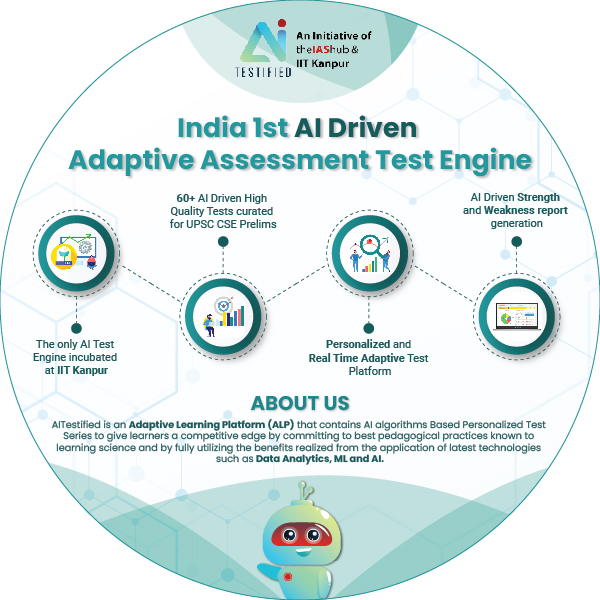Q. Examine the role of Biotechnology in addressing the challenges faced by the farmers in India. (Answer in 150 words)
04 Oct, 2022
GS III
Daily Answer Writing 2022-23 ( Upgrade)
Modal Answer
Modal Answer
While green revolution was instrumental in attaining the quantitative goal of food sufficiency, biotechnology has emerged as a game changer in ensuring nutritional security & reducing environmental footprint of agriculture.
Key Challenges faced by Indian farmers:
Low productivity: at just 2.5 tonnes/hectare compared vs 3.5 tonnes/hectare as world average.
- Low quality inputs: >80% of seeds used are of low quality.
- Poor income: Per day income of farm households at ₹277
- Cyclical nature: 40% of agriculture is rainfed.
- Rise in pest/diseases: Cotton Bollworm, Paddy dwarfing.
- Climate Change impact: Leading to crop & livestock stress
Government Initiatives:
2. Hybrid development – Rice, Maize (PUSA),
- National Genotyping and Genomics Facility” (NGGF)
Role played by Biotechnology in Addressing Challenges:
- Increased yield: 5-25% depending on the soil and climate.
- Enhanced income: Eg. Bt cotton adoption increased farmers' profits by 50%.
- Climate resilient agriculture: addition of protein called FTO to rice & potato increases drought tolerance.
- Reduced dependence on fertilizers & pesticides: Bacillus thuringiensis (Bt) bacterium with insecticidal qualities.
- Increased nutritional qualities: Eg. Golden Rice (Vit A)
- Livestock breeding: Animal cloning, through somatic cell nuclear transfer (SCNT)à increased milk production.
- Value addition to Agri- products & Food processing: Improved taste & shelf life. Eg. FlavrSavr tomato.
Issues in Adoption of Biotechnology:
- Monoculture: eradicates native crops; increases threat of disease.
- Inconsistent results: Cotton yield not consistent - decline in yield after the initial 2-3 years.
- High Input cost: Needs more irrigation, fertilisers, pesticides etc. eventually.
- Monopoly of industries: leading to exploitation of farmers (Eg. Monsanto).
- Litigation:g. PepsiCo vs farmers in FL2027 potato.
- Impact on human health - Many GM crops contain gene that are anti biotic resistant or contain allergens.
- Environmental issues - Potential gene escape and superweeds; Insecticide resistance etc.
- Other challenges - Lack of scientific infra, inadequate R&D, poor private sector participation, Lack of trained manpower, Complex regulatory regime, Biopiracy etc.
Way Forward:
- Precautionary approach: commercialisation of inputs only after GEAC approval.
- Establishing a regulatory authority:g. Biotechnology Regulatory Authority of India (BRAI) proposed in 2013.
- Sufficient safeguards:g. Biosafety Support Unit (BSU) project under Dept. of Biotechnology.
- Enforcement of strong IPR regime to incentivise quality research.
- Public awareness of risks and benefits of biotechnology
Thus, ‘cautious adoption’ of Biotechnology, while balancing the risks to farmer, health, & ecology is need of the hour to propel Indian agriculture towards the 2nd Green Revolution.
Please login to upload your copy.
Uploaded Copies
No copies found.
